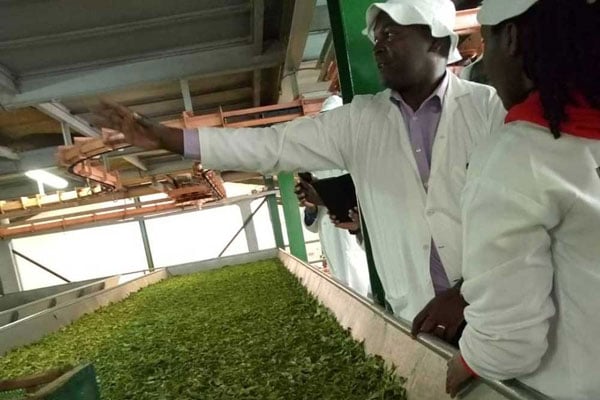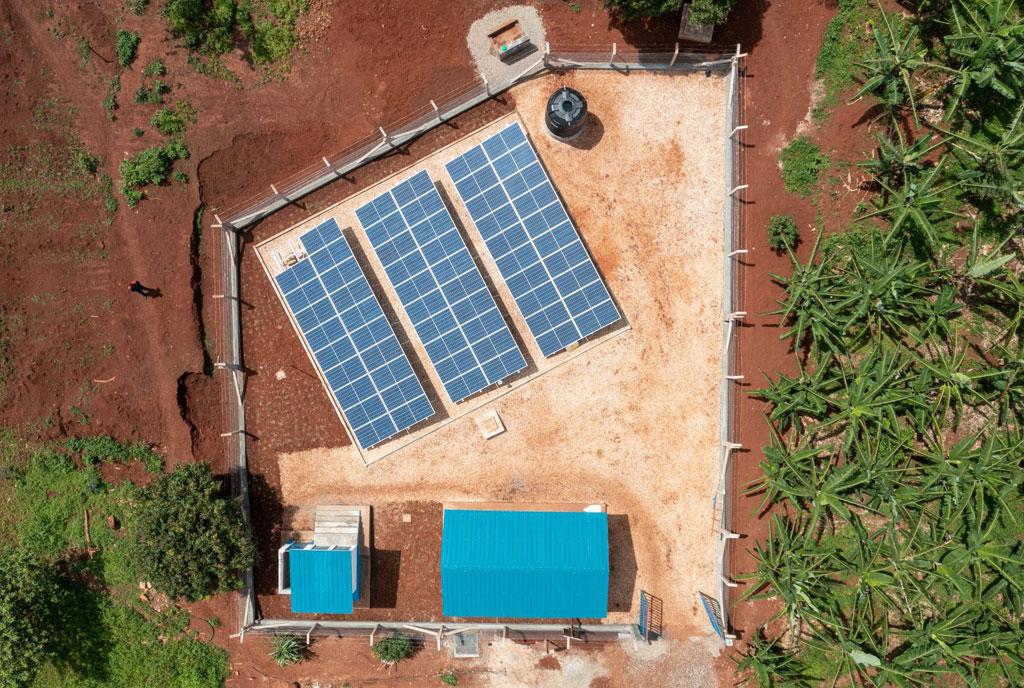Prime
Farmers urged to make farming energy-efficient

Mpanga Tea Factory in Fort Porta was running broke with power bills amounting to 54m monthly before adopting energy-efficient production. Photo/Courtesy
What you need to know:
- With a growing population, there is a large increase in the amount of energy consumed which increases demand and prices. Farmers are encouraged to shift from fossil fuels to low-carbon sources of energy of renewables including hydropower, solar and wind.
Failure to manage energy costs will leave many farm operations struggling to make a profit, experts warn.
Jacob Etunganan, an energy consultant with the Netherlands Development Organisation (SNV) says that farmers need to meet modern energy challenges through a number of ways including cutting production, modifying how farms work, investing in energy-saving technology and making use of renewables.
Power has massive value to farms; from lighting, to tilling, cooking, spraying, weeding, irrigation, heating, drying produce, milling, milk cooling or running farm machinery.
With a growing population, there is a large increase in the amount of energy consumed which increases demand and prices. Farmers are encouraged to shift from fossil fuels to low-carbon sources of energy of renewables including hydropower, solar and wind.
While presenting at the Inclusive Markets for Energy Efficiency in Uganda in Fort portal city, Kabarole District, Etunganan said that farmers must embrace energy saving options.
“Energy costs are increasing by the day. Farmers should not just spend money to meet energy requirements but must earn money as well by saving on energy,” Etunganan says.
The Inclusive Markets for Energy Efficiency in Uganda is a €2.1m (Shs31.8b) energy efficiency adoption project targeting Small to Medium Enterprises among tea, maize, sunflower and soya in western Uganda, central region and northern Uganda as well as the built environment especially schools.
Renewable energy
Etunganan says that generating energy from renewable sources such as solar, wind and biomass sources can significantly reduce a farm’s power costs.
He says small-to-medium-sized roof mounted photovoltaic (PV) systems can offer a good solution for those who want to use most of the energy generated on site. He explains that energy efficient farms must be able to produce their own energy from farm waste.
“Self-generation of energy has the potential to significantly cut a farm’s energy bills and protect against further price volatility,” he says.
Another viable source is generation of power from biogas. He says this could solve the slurry storage problem and produce power as well as high quality fertiliser.
Ethanol is looked at as another viable renewable solution. Etunganan says farmers can install methane harvesting facilities to be able to slash electricity bills.
He says harvesting ethanol not only reduces input costs but also reduces fossil fuel use, greenhouse emissions and decreases the farm’s carbon print.
“Farmers, especially in dairy, have a role to play to slow down climate change. They can efficiently manage waste and turn the greenhouse gases into clean fuel,” he says.
Etunganan cautions farmers to conduct a full assessment of how a new energy plan one wishes to undertake might change the costs while analysing the available options on the market.
Reduce energy consumption
Smart farms, he says, must be vigilant in reducing costs and increase energy efficiency. “The cheapest unit of energy is the one you don’t often use, farmers should spend time thinking about monitoring tools that will need to be deployed,” he says.
This, he says, could range from something as simple as LED lighting, to heat pumps.
SNV Intervention
The Inclusive Markets for Energy Efficiency in Uganda, a four-year project funded by the Embassy of Sweden, aims at helping farmers reduce operational costs by encouraging them to do the right things.
The overall contribution objective of the project is to increase development and adoption of energy efficient products and services in prioritized agriculture value chain of tea, maize, sunflower and soybean as well as the built environment to enhance livelihood and increase resilience and competitiveness in Uganda. It targets ii districts in three cities of Fort Portal, Kampala and Lira.
“The pressure energy costs are exerting on businesses is huge. We are helping people make immediate changes first by how they operate,” Etunganan says. The project will directly benefit 30,000 households, 328 SMEs, 52 social institutions, and 15 energy service providers. A Shs7.8b Market Development Fund will go towards piloting innovative models for supplying and adopting energy-efficient technologies.
The project is implemented by a consortium led by SNV with support from Makerere University College of Engineering, Design, Art and Technology (CEDAT) and the Private Sector Foundation Uganda.
According to Etunganan, the project targets behavioural change and increased awareness among the farmers, capacity strengthening of energy service providers, and partnership for policy advocacy as well as applied research.




